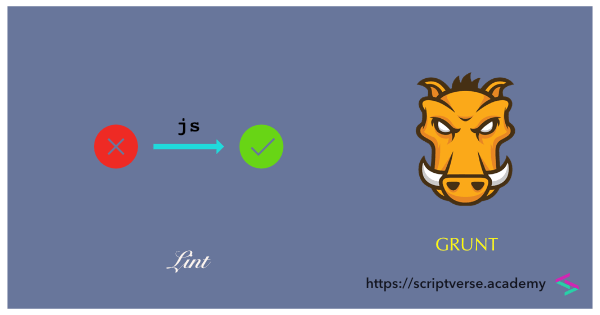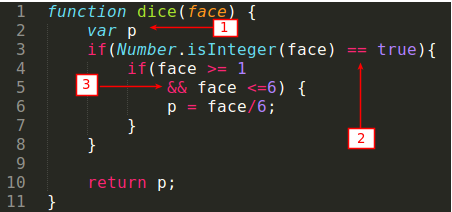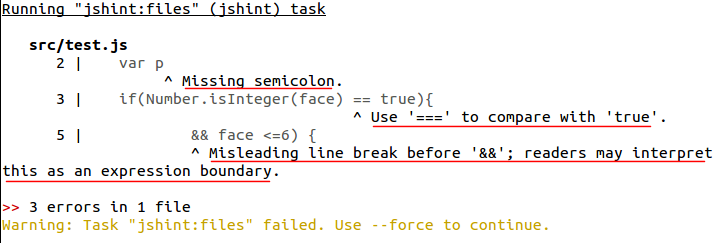JavaScript Linting with JSHint
JSHint is an open source static code analysis tool for detecting errors and compliance with coding rules in JavaScript code. JSHint is a fork of JSLint.

JSHint is available as a Grunt plugin: grunt-contrib-jshint. To install this plugin, navigate to your project's directory (where the package.json and Gruntfile.js files are located) and type the following command in the terminal
npm install grunt-contrib-jshint --save-dev
The devDependencies field of the package.json file will now have a new listing - grunt-contrib-jshint
"devDependencies": {
"grunt": "~1.0.1",
"grunt-contrib-jshint": "^0.12.0"
}
We will lint the JS file test.js located inside the /js directory. Configuration for this linting task inside the grunt.initConfig() method follows the structure given below
module.exports = function(grunt) {
grunt.initConfig({
pkg: grunt.file.readJSON('package.json'),
jshint: {
files: ['js/test.js']
}
});
grunt.loadNpmTasks('grunt-contrib-jshint');
}
The linting task can now be run typing the command
grunt jshint
Example
Consider the below function, named dice, containing syntax errors and some lines which are not in compliance with coding standards (highlighted by arrows)

The errors labelled numerically above (in boxes) are described below correspondingly:
-
semi-colon after
p -
missing
===operator when comparing against Boolean values -
misleading line break before the logical
&&operator
After validating test.js with JSHint, we get the following result in the console
